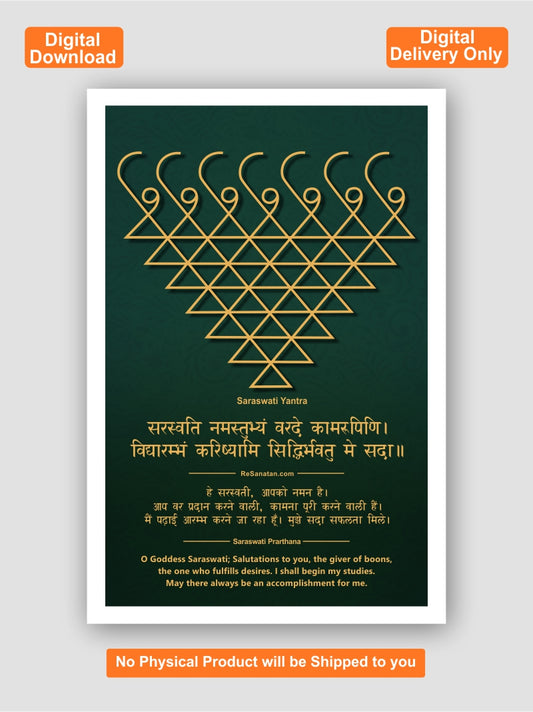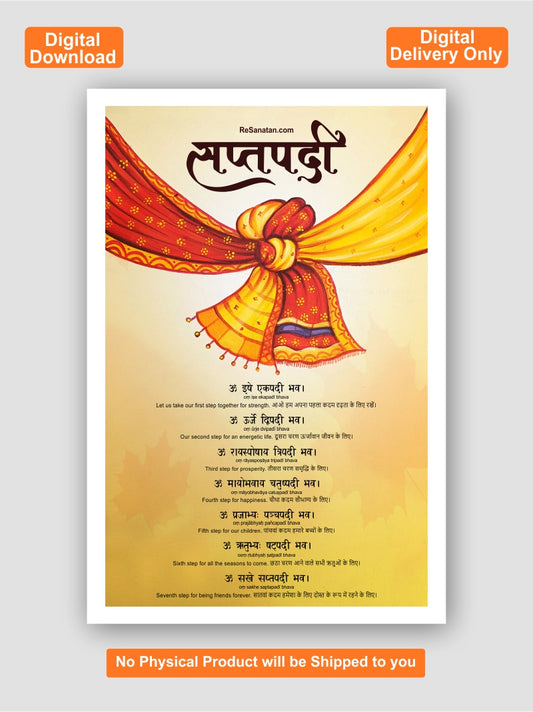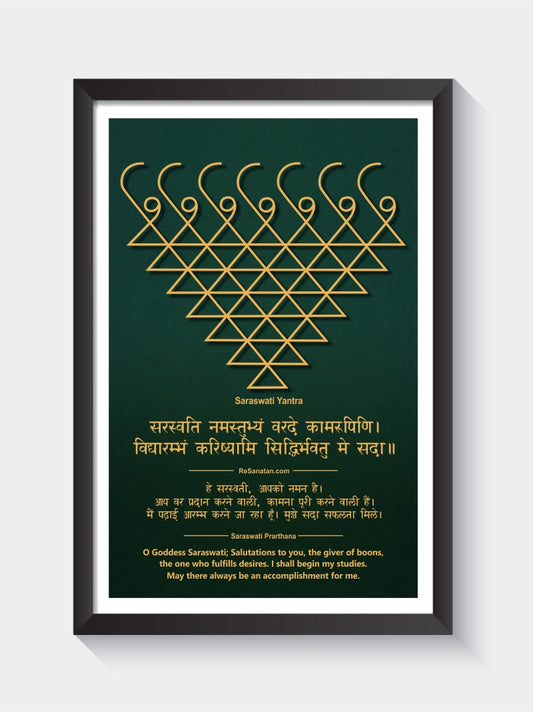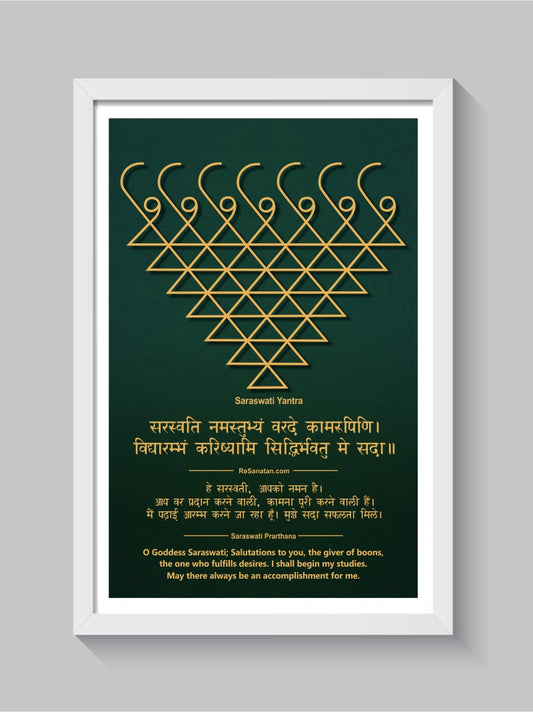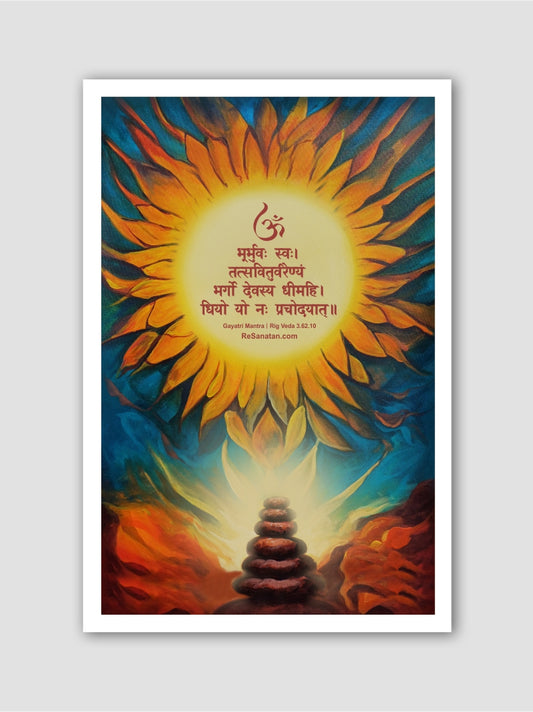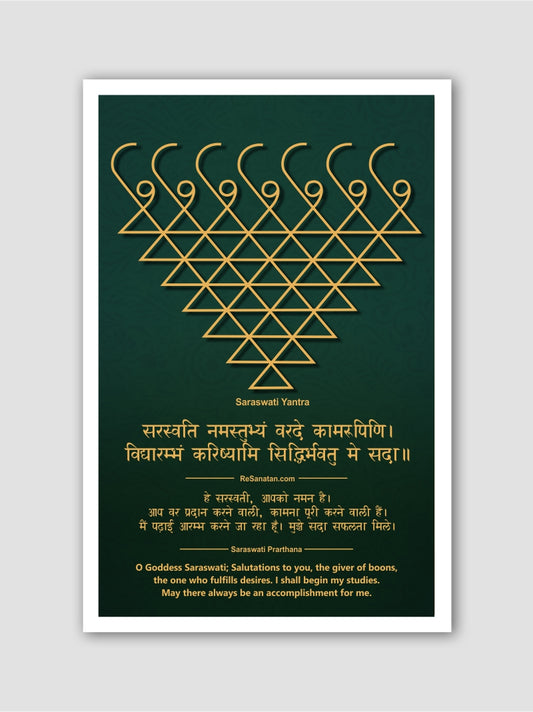
Exploring the Profound Meaning of Ramayan Chaupai in English and Hindi
Share
The Ramayan Chaupai, also known as the Ramayan Chopai or Ramayan Chalisa, is a revered hymn from the epic Hindu scripture, Ramayana. Composed by the legendary sage Tulsidas in the 16th century, this devotional composition holds immense significance in the hearts of millions of devotees around the world.
The Ramayan Chaupai serves as a spiritual guide, offering timeless lessons applicable to various aspects of human life. It advocates for righteousness, ethical conduct, and devotion to a higher purpose. The importance of duty, sacrifice, and the pursuit of truth are recurring themes, inspiring individuals to lead a life of virtue and righteousness.
In this article, we will explore some of the most useful Ramayan Chaupai and Doha, providing the quote lyrics in English and Hindi, along with their detailed meanings in both Hindi and English.
1- Sita Ram Charan Rati More, Anudin Badahu Anugrah Tore. (सीताराम चरण रति मोरे, अनुदिन बढ़हु अनुग्रह तोरे।)
Meaning in English: The devotee expresses profound joy and satisfaction in being close to the sacred feet of Sita Ram. The prayer is for an ongoing increase in the blessings and grace bestowed by the divine.
This Chaupai reflects a deep sense of devotion and bliss experienced by the devotee in contemplating the divine feet of Sita Ram. The act of finding delight in the divine presence is an expression of profound love and spiritual satisfaction. The devotee humbly seeks an ongoing increase in divine blessings, recognizing the importance of divine grace for spiritual growth and well-being. The verse encapsulates the essence of a sincere and heartfelt connection with the divine, emphasizing the devotee's yearning for continuous divine favor.
Meaning in Hindi: सीता राम के चरणों में मेरी रति है; भगवान, तुम्हारा आशीर्वाद और कृपा हमेशा बढ़ती रहे।
इस चौपाई में भक्त ने भगवान सीता राम के पवित्र पादों में गहरा आनंद और संतोष अनुभव किया है। यह प्रार्थना है कि दिव्य परमात्मा द्वारा प्रदान की जाने वाली आशीर्वाद और कृपा हमेशा बढ़ती रहे।
2- Mangal Bhavan, Amangal Haari Drabahu Su Dasarath, Ajir Bihari. ( मंगल भवन, अमंगल हारी द्रबहु सु दसरथ, अजिर बिहारी।)
Meaning in English: Auspicious is the abode, dispelling inauspiciousness; Drabahu (Lord Rama), the son of King Dasaratha, the one who roams without fatigue.
The devotee expresses auspiciousness and seeks refuge in the divine abode, recognizing it as the dispeller of inauspiciousness. The verse specifically refers to Lord Rama, the son of King Dasaratha, as the one who eliminates all troubles and wanderings. This Chaupai reflects the devotee's deep reverence for the sacred and protective nature of Lord Rama's divine presence. The devotee earnestly prays for the grace of the divine, acknowledging the transformative power of the Lord to ward off negativity and ensure well-being.
Meaning in Hindi: इस चौपाई में भक्त ने दिव्य आसन की महत्वपूर्णता को मान्यता दी है, जिसे अशुभता का नाशक कहा गया है। विशेष रूप से, यह चौपाई राजा दशरथ के पुत्र, द्रबहु (भगवान राम) को संदर्भित करती है, जो सभी कठिनाइयों को दूर करने वाले हैं और थकाना महसूस किए बिना चलते हैं। इस चौपाई में भक्त भगवान राम की पवित्र उपस्थिति के प्रति गहरा श्रद्धांजलि व्यक्त करता है। भक्त भगवान की कृपा के लिए ईश्वर से प्रार्थना करता है, दृढ़ता से स्वीकार करता है कि भगवान की शक्ति से सभी नकारात्मकता को हर लिया जा सकता है और सुरक्षा सुनिश्चित की जा सकती है।
3. Prabisi Nagar Kije Sab Kaja. Hriday Rakhi Kosala Pur Raja. (प्रबिसि नगर कीजे सब काजा। हृदयँ राखि कोसलपुर राजा॥)
Meaning in English: This couplet imparts a valuable life lesson about maintaining balance between worldly responsibilities and inner spiritual awareness. The advice is to carry out all tasks and responsibilities in the external world ("प्रबिसि नगर" - Prabisi Nagar) with diligence and dedication. At the same time, it emphasizes the importance of keeping one's heart and inner focus centered on the spiritual realm, symbolized here by the kingdom of Kosala ("हृदयँ राखि कोसलपुर राजा" - Hriday rakh Kosala pur raja).
In the context of the Ramayana, Ayodhya is often referred to as the kingdom of Kosala, and Lord Rama, the ideal king, ruled over it. The couplet suggests that while engaged in worldly tasks, one should maintain an inner connection with higher values and spiritual principles. It encourages individuals to uphold their responsibilities in the external world while remaining rooted in inner virtues.
Meaning in Hindi: यह दोहा जीवन के मूल्यवान सिख को साझा करता है जो व्यापक जिम्मेदारियों और आंतरिक आध्यात्मिक जागरूकता के बीच संतुलन बनाए रखने की है। सलाह दी जाती है कि सभी कार्य और जिम्मेदारियों को बड़ी ईमानदारी और समर्पण के साथ बिना किए जाए ("प्रबिसि नगर" - Prabisi Nagar)। इसके साथ ही, इसे यह भी कहा जाता है कि आत्मा और मानव हृदय को आध्यात्मिक क्षेत्र में ध्यानित रखना अत्यंत महत्वपूर्ण है, जिसे यहाँ कोसला के राजा की राजधानी के रूप में प्रतीत किया गया है ("हृदयँ राखि कोसलपुर राजा" - Hriday rakh Kosala pur raja)।
रामायण के संदर्भ में, अयोध्या को कई बार कोसला के राज्य के रूप में संदर्भित किया जाता है, और भगवान राम, आदर्श राजा, इस पर राज करते थे। यह दोहा इसे सुझावित करता है कि जबकि व्यापक कार्यों में रहते हुए, व्यक्तियों को उच्च मूल्यों और आध्यात्मिक सिद्धांतों से जुड़े रहना चाहिए। यह व्यक्तिगत जिम्मेदारियों को बाहरी दुनिया में बनाए रखने की साथ-साथ आंतरिक गुणों में निष्ठा बनाए रखने की प्रोत्साहित करता है।
4. Jehi bidhi nath hoi hit mora. Karahu so begi das main tora. (जेहि बिधि नाथ होइ हित मोरा। करहु सो बेगि दास मैं तोरा।।)
Meaning in English: This couplet expresses a profound surrender and plea to the divine. The devotee seeks the Lord to become their protector in whatever manner the Lord deems fit. The emphasis is on surrendering to the divine will and seeking to be a devoted servant of the Lord as quickly as possible. The devotee acknowledges the supreme authority of the Lord and expresses a deep desire to be under His benevolent guidance.
Meaning in Hindi: यह दोहा भगवान के प्रति गहरी शरणागति और प्रार्थना का अभिव्यक्ति करता है। भक्त भगवान से यह प्रार्थना करता है कि वह उनका संरक्षक बनें, जैसा भगवान को उचित लगे। इसमें यह बात है कि भगवान की इच्छा के अनुसार आत्मसमर्पण करना है और तुरंत भगवान के परम भक्त बनने की प्रार्थना की जाती है। भक्त स्वीकार करता है कि भगवान की सर्वोच्च अधिकार है और शांतिदाता मार्गदर्शन में रहने की गहरी इच्छा है।
5. Siya-Rammay Sab Jag Jaani. Karau Pranam Jori Jug Paani. (सियाराममय सब जग जानी। करउं प्रणाम जोरि जुग पानी।।)
Meaning in English: This couplet expresses a deep sense of awareness and devotion to the divine presence of Sita Ram permeating every aspect of the universe. The devotee acknowledges the omnipresence of Sita Ram in all creation and offers sincere salutations with devotion, expressing a humble reverence to the Lord of the Universe. The act of bowing down signifies a gesture of submission, love, and respect towards the divine.
Meaning in Hindi: यह दोहा ईश्वरीय उपस्थिति के प्रति गहरे जागरूकता और भक्ति का अभिव्यक्ति करता है, जो सभी परिस्थितियों में सीता राम की दिव्य उपस्थिति को मानता है। भक्त सीता राम के सर्वव्यापी होने को स्वीकार करता है और श्रद्धाभाव से अपने भक्ति रूप प्रणाम अर्पित करता है, ब्रह्मांड के स्वामी के प्रति विनम्र श्रद्धांजलि का अभिव्यक्ति करता है। नमस्कार करने का क्रियावली ईश्वर के प्रति समर्पण, प्रेम, और आदर की भावना का प्रतीक है।
6. Sanmukh Hoi Jeev Mohi Jabahi. Janm Koti Agh Naasahin Tabahi. (सनमुख होइ जीव मोहि जबहीं। जन्म कोटि अघ नासहिं तबहीं॥)
Meaning in English: This couplet conveys the transformative power of turning one's soul towards the Beloved, where the term "Beloved" can refer to a divine figure or the source of ultimate truth. When the soul aligns itself with the divine, all the accumulated sins of countless lifetimes are instantly absolved. The emphasis is on the profound impact of spiritual alignment and devotion in purifying the soul and freeing it from the burdens of past wrongdoings.
Meaning in Hindi: यह दोहा अपनी आत्मा को प्रियतम की ओर मोड़ने की प्रक्रिया की आद्यत्मिक बदलाव की शक्ति को व्यक्त करता है, जहां "प्रियतम" एक दिव्य प्रतीक या परम सत्य के स्रोत को सूचित कर सकता है। जब आत्मा दिव्य के साथ समर्पित होती है, तो अनगिनत जन्मों के पाप तत्काल मिट जाते हैं। इसमें आत्मा को शुद्ध करने और इसे पिछले अशुभ कर्मों के बोझ से मुक्त करने में आद्यत्मिक समर्पण और भक्ति के प्रभाव की महत्वपूर्णता पर जोर दिया गया है।
7. Ab Prabhu Kripa Karhu Ehi Bhaanti. Sab Taji Bhajanu Karau Din Raati. (अब प्रभु कृपा करहु एहि भाँति। सब तजि भजनु करौं दिन राती॥)
Meaning in English: This couplet reflects a plea for divine grace in a specific way. The devotee implores the Lord to bestow His benevolence in a particular manner. The commitment is to forsake all else and engage in constant worship day and night. It signifies the intense desire for the divine favor and the willingness to dedicate oneself completely to the worship and devotion of the Lord.
Meaning in Hindi: यह दोहा एक विशिष्ट तरीके से दिव्य कृपा के लिए एक विनती को प्रतिबिम्बित करता है। भक्त प्रभु से अपने कृपानुग्रह को एक विशेष रूप में प्रदान करने के लिए प्रार्थना करता है। इसका प्रतिबद्धता यह है कि सभी अन्य कुछ छोड़कर, भक्त दिन-रात आपकी पूजा और भक्ति में निरंतर रूप से लगा रहेगा। इससे यह साबित होता है कि दिव्य कृपा की अत्यंत इच्छा है और भक्ति और पूजा में पूरी तरह से समर्पित होने की इच्छा है।
8. Mangal Moorti Maruti Nandan. Sakal Amangal Mool Nikandan. (मंगल मूरति मारुति नंदन। सकल अमंगल मूल निकंदन॥)
English Meaning: This verse praises the auspicious and blessed form of Maruti, another name for Lord Hanuman, who is considered the son of the wind. Maruti embodies strength, devotion, and divine blessings. The verse emphasizes that just thinking about or being in the presence of Maruti dispels all sources of inauspiciousness from their very root. It highlights the protective and purifying nature of Lord Hanuman, known for his unwavering devotion to Lord Rama.
Hindi Explanation: यह श्लोक हमें बताता है कि हनुमान जैसा दिव्य और मंगलमय रूप होता है, जो हमें नकारात्मकता से मुक्ति दिलाता है। इसमें यह भी कहा जाता है कि हनुमान की शक्ति, भक्ति, और आशीर्वाद से भरी हुई है। श्लोक बताता है कि हनुमान के संबंध में रहना या उन्हें याद करना हमें सुरक्षित और पवित्र महसूस करा सकता है। उनकी अड़ले भक्ति ने उन्हें भगवान राम के प्रति पूर्ण समर्पण में प्रमुख बना दिया है।
9. Binu Satsang Bibek Na Hoee. Ram Kripa Binu Sulabh Na Soee. (बिनु सतसंग बिबेक न होई। राम कृपा बिनु सुलभ न सोई॥)
Meaning in English: This couplet conveys that wisdom and discernment come through the company of the wise (satsang). It emphasizes the importance of associating with those who possess spiritual wisdom and insight. Additionally, it highlights that without the divine grace of Lord Rama, finding true ease and contentment in life is challenging.
Meaning in Hindi: यह दोहा यह कहता है कि बुद्धिमत्ता और विवेक सत्संग के साथ ही आते हैं। इसमें यह बात की गई है कि वे लोगों के साथ जुड़ने का महत्व है जो आध्यात्मिक ज्ञान और दृष्टि रखते हैं। इसके अलावा, इसने यह भी उजागर किया है कि भगवान राम की कृपा के बिना, जीवन में सच्चे सुख और संतोष को प्राप्त करना कठिन है।
10. Hoi bibeku moh bhram bhaga. Tab Raghunath charan anuraga. (होइ बिबेकु मोह भ्रम भागा। तब रघुनाथ चरन अनुरागा॥)
Meaning in English: This verse conveys that when discrimination (bibek) arises, the delusions and attachments diminish. It is then that a deep love for the divine feet of Raghunath (Lord Rama) blossoms. The verse emphasizes the transformative power of discernment in dispelling confusion and leading to a heartfelt devotion to the divine.
Meaning in Hindi: यह श्लोक बताता है कि जब विवेक (बिबेक) उत्पन्न होता है, तब भ्रम और मोह कम हो जाते हैं। इस समय रघुनाथ (भगवान राम) के पवित्र पादों के प्रति एक गहरा प्रेम फूटता है। श्लोक ने विवेक की शक्ति को महत्वपूर्ण बनाया है जो भ्रम को दूर करने में सहायक है और दिव्य के प्रति हृदयस्पर्शी भक्ति की ओर प्रेरित करता है।
11. Uma Kahoon Main Anubhav Apna. Sat Hari Bhajanu Jagat Sab Sapna. (उमा कहउँ मैं अनुभव अपना। सत हरि भजनु जगत् सब सपना॥)
Meaning in English: In this verse, Lord Shiva speaks to Uma (Goddess Parvati), sharing a deep insight. He reflects on the transformative power of continuous devotion to the eternal truth, Sat Hari. Lord Shiva perceives the entire worldly existence and its pursuits as fleeting illusions, akin to ephemeral dreams. Through this revelation, he emphasizes that genuine understanding and wisdom arise from steadfast worship of the divine. Everything else, in comparison, appears as transient as passing dreams.
Meaning in Hindi: इस श्लोक में, भगवान शिव उमा (देवी पार्वती) से बातचीत करते हैं और एक गहरे अनुभव को साझा करते हैं। इस अनुभव के माध्यम से, उनका कहना है कि वास्तविक समझ और ज्ञान दिव्य की स्थिर पूजा से ही उत्पन्न होता है। उसके तुलना में, अन्य सब कुछ केवल एक चलते रहने वाले सपने की भांति दिखाई देता है।
12. Hoihi Soi Jo Ram Rachi Rakha, Ko Kari Tark Badhavai Sakhā. (होइहि सोइ जो राम रचि राखा। को करि तर्क बढ़ावै साखा॥)
Meaning in English: The first line, "होइहि सोइ जो राम रचि राखा," asserts that everything unfolds as per the divine plan of Lord Rama. The word "रचि" signifies the divine creation or will. Tulsidas encourages individuals to recognize and accept the unfolding of events with a sense of surrender and devotion to the higher power. This acceptance aligns with the concept of divine providence, where one believes that life's events are guided by a higher purpose.
The second line, "को करि तर्क बढ़ावै साखा," questions the need for excessive argumentation or reasoning. Tulsidas questions, "Who would engage in unnecessary debates?" The term "तर्क" refers to logical reasoning or argumentation. The poet suggests that expanding the branches of unnecessary arguments is futile when one can embrace a more humble and accepting attitude towards the divine order.
In essence, Tulsidas encourages individuals to cultivate a mindset of surrender and devotion, recognizing the divine orchestrations in life. The poet advocates moving beyond futile debates and trusting in the divine wisdom, urging a harmonious alignment with the cosmic plan. This perspective reflects not only a religious sentiment but also a broader philosophical outlook on acceptance and humility in the face of life's complexities.

Meaning in Hindi: "होइहि सोइ जो राम रचि राखा" का मतलब है कि जो कुछ भी हो रहा है, वह सब भगवान राम की इच्छा के अनुसार हो रहा है। "रचि" शब्द से यह सूचित होता है कि दिव्य रचना या इच्छा। तुलसीदास व्यक्तियों से कहते हैं कि उन्हें उच्च शक्ति की आदेशों और दिव्य योजना में समर्पित रहना चाहिए। यह स्वीकृति एक उच्च उद्देश्य की ओर बढ़ने का एक प्रतीक है।
"को करि तर्क बढ़ावै साखा" वाक्य में तुलसीदास पूछते हैं कि क्या आवश्यकता है अत्यधिक वाद या तर्क में लिपटने की? "तर्क" शब्द योग्यता या वाद-विवाद को सूचित करता है। कवि सिखाते हैं कि निरर्थक वाद या तर्क में रहना निरर्थक है जब कि व्यक्ति दिव्य क्रियाओं को स्वीकार करने के लिए और विश्वास के साथ हमारे जीवन में सामंजस्य बनाए रखने के लिए तैयार हो सकता है।
सारांश में, तुलसीदास व्यक्तियों को समर्पण और भक्ति की मानसिकता विकसित करने के लिए प्रेरित करते हैं, जीवन में दिव्य योजनाओं को पहचानने की। कवि निरर्थक वाद-विवाद के परे बढ़ने और ब्रह्मांडिक योजना के साथ समर्थन करने के लिए एक औरत और स्वीकृति की दृष्टिकोण को समर्थन करते हैं।




